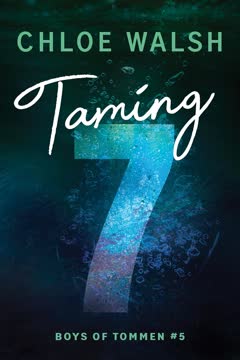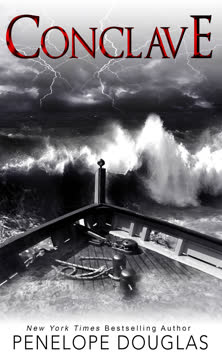Plot Summary
Childhood Bonds Forged
Jared and Tate meet as children when Tate moves in next door. Both are hurting—Jared from an absent father and alcoholic mother, Tate from the recent loss of her mother. Their friendship is instant and deep, built on shared pain and a sense of safety in each other's company. They climb trees, share secrets, and become each other's family, finding solace in their bond. The world outside is uncertain, but together, they feel invincible. This foundation of trust and affection will become the touchstone—and the battleground—for everything that follows.
Summer of Scars
At fourteen, Jared spends a summer with his estranged father, hoping for connection. Instead, he endures abuse and witnesses horrors, including his half-brother Jax's suffering. Jared returns home traumatized, unable to process his pain or confide in Tate. The boy who left as Tate's best friend comes back hardened, angry, and emotionally closed off. The trauma festers, and Jared's inability to share his pain with Tate becomes the wedge that drives them apart, setting the stage for years of animosity.
Return as Strangers
Jared's return marks the end of innocence. He pushes Tate away, turning their friendship into a campaign of bullying and isolation. Tate, bewildered and hurt, becomes the target of Jared's anger and pranks at school. Their once-safe haven is now a war zone, with Jared's cruelty masking his unresolved pain and jealousy. Tate's world shrinks as she loses friends and confidence, while Jared finds a twisted sense of control in her suffering, even as it leaves him emptier.
The War Next Door
High school becomes a battlefield. Jared's relentless campaign against Tate intensifies, but so does her resilience. After a year abroad, Tate returns changed—stronger, more assertive, and unwilling to be a victim. Their confrontations become more charged, laced with both hatred and unresolved longing. The neighborhood, once a symbol of childhood safety, now mirrors their emotional minefield. Their friends and families are drawn into the crossfire, and the line between love and hate blurs.
Games of Power
Jared seeks distraction in parties, racing, and casual hookups, but nothing fills the void left by Tate. He manipulates her social life, sabotages her relationships, and even uses her best friend K.C. to get under her skin. Tate, meanwhile, begins to fight back, refusing to be cowed. Their interactions are a volatile mix of attraction and antagonism, each trying to assert dominance while secretly craving connection. The games escalate, threatening to destroy them both.
Breaking Points
A series of humiliations—public pranks, rumors, and a scandalous locker room incident—push Tate to her limits. Jared's jealousy and possessiveness become more obvious, even as he continues to hurt her. The pain of their past and the secrets Jared keeps about his family and his summer of abuse reach a boiling point. Both are forced to confront the damage they've done—to each other and themselves. The cost of silence and pride becomes unbearable.
The Unraveling
Tate's emotional monologue in class exposes the depth of her pain and the love she once had for Jared. The performance is a turning point, shattering Jared's defenses and forcing him to confront his own feelings. He spirals, lashing out and seeking solace in self-destruction, but the old coping mechanisms no longer work. The truth of their connection—and the devastation of its loss—becomes undeniable. Both are left raw, vulnerable, and desperate for resolution.
Confessions and Consequences
Jared finally confesses the truth about his abusive summer, his half-brother Jax, and the real reasons behind his cruelty. He apologizes to Tate, admitting his jealousy, pain, and the twisted logic that made him hurt the person he loved most. Tate, in turn, reveals her own scars and the ways she tried to survive his torment. Their mutual confessions are cathartic but do not erase the past. Forgiveness is not immediate, but the possibility of healing emerges.
The Reckoning
Just as Jared and Tate begin to rebuild, a sex tape of them is maliciously distributed at school, shattering their fragile peace. The betrayal comes from within their circle, and the fallout is swift and brutal. Tate is humiliated, Jared is blamed, and both are forced to confront the consequences of their actions and the cruelty of others. The crisis tests their trust and commitment, pushing them to the edge once more.
Vulnerability and Truth
In the aftermath of the scandal, Jared takes public responsibility for his actions, making a heartfelt confession in front of the entire school. He owns his past, his mistakes, and his love for Tate, refusing to hide or make excuses. This act of vulnerability is both a reckoning and a redemption, signaling his willingness to change and to be truly seen. Tate, moved by his honesty, begins to believe in the possibility of a future together.
Rebuilding Trust
Jared and Tate work to rebuild their relationship, this time on a foundation of honesty and mutual respect. They set boundaries, confront their insecurities, and learn to communicate without games or manipulation. Their families and friends, once obstacles, become sources of support. Jared's relationship with his mother and brother improves, and Tate finds strength in her own voice. Together, they begin to imagine a life not defined by pain, but by hope.
Claiming Each Other
Their physical and emotional intimacy deepens as Jared and Tate learn to trust and accept each other fully. Jared, once afraid of needing anyone, embraces his love for Tate without shame. Tate, once defined by Jared's cruelty, reclaims her agency and chooses him on her own terms. They become each other's lifelines, not out of desperation, but out of choice. Their love is no longer a battleground, but a refuge.
Facing the Past
Jared confronts his father in prison, seeking closure for the abuse and abandonment that shaped him. He also works to bring his half-brother Jax into a safer, more loving environment. Tate supports him, even as she continues to heal from her own losses. Both learn that forgiveness is not forgetting, but choosing to move forward. The past no longer controls them; it becomes a part of their story, not the whole of it.
Public Redemption
Jared's public apology and vulnerability inspire others to see him—and Tate—differently. The school's perception shifts, and the cycle of bullying begins to break. Jared and Tate's willingness to own their mistakes and forgive each other sets a new standard for their community. They are no longer defined by their worst moments, but by their courage to change.
New Beginnings
With the past behind them, Jared and Tate look to the future. They support each other's dreams, navigate the challenges of young adulthood, and continue to grow as individuals and as a couple. Their relationship, once toxic and destructive, becomes a source of strength and inspiration. They are no longer at war, but partners in life.
Love Without Apology
Jared and Tate's journey is not about perfection, but about embracing love in all its messiness. They learn that true intimacy requires vulnerability, honesty, and the willingness to fight for each other. Their story is a testament to the power of forgiveness, the resilience of the human heart, and the possibility of redemption. In the end, they choose each other—fully, fiercely, and without apology.
Characters
Jared Trent
Jared is a complex protagonist whose early trauma—abandonment by his father, abuse, and a neglectful mother—shapes his worldview. As a child, he is sensitive and loving, but after a summer of abuse, he returns hardened, channeling his pain into cruelty toward Tate. His bullying is a misguided attempt to regain control and protect himself from vulnerability. Jared's journey is one of self-destruction and, ultimately, self-awareness. Through Tate's resilience and his own willingness to confront his past, he learns to accept love, take responsibility, and break the cycle of pain. His relationship with his half-brother Jax and his evolving bond with his mother further humanize him, revealing a capacity for deep loyalty and growth.
Tatum "Tate" Brandt
Tate is introduced as a grieving child, having lost her mother, but she quickly becomes Jared's anchor and confidante. When Jared turns on her, she is devastated but refuses to be broken. Her time abroad transforms her, giving her the strength to stand up for herself and reclaim her agency. Tate's journey is one of survival, self-discovery, and forgiveness. She is not a passive victim; she fights back, demands honesty, and sets boundaries. Her compassion allows her to see the pain behind Jared's actions, but she does not excuse them. Tate's growth is marked by her ability to love without losing herself.
Jaxon "Jax" Trent
Jax is Jared's younger half-brother, a victim of their father's abuse. His presence in the story is a constant reminder of the consequences of silence and the importance of intervention. Jax's resilience and wit provide moments of levity, but his struggles also motivate Jared to confront his own demons and become a protector rather than a perpetrator. Jax's eventual integration into Jared's life symbolizes hope and the possibility of breaking generational cycles of trauma.
Katherine Trent (Jared's Mother)
Katherine is a young, alcoholic mother who fails Jared in his formative years. Her journey toward sobriety and her efforts to repair her relationship with Jared are fraught with setbacks but ultimately sincere. She represents the possibility of change, the pain of regret, and the importance of taking responsibility for one's actions. Her support in helping Jax and her honest conversations with Jared are pivotal in his healing.
James Brandt (Tate's Father)
James is a stabilizing force in Tate's life and, eventually, in Jared's. He offers guidance, sets boundaries, and provides a model of healthy masculinity. His willingness to take Jared in during a crisis and his insistence on accountability reflect his integrity. James's presence underscores the importance of adult intervention and the impact of positive role models.
Madoc Caruthers
Madoc is Jared's best friend and occasional partner in mischief. He is charismatic, quick-witted, and often serves as a foil to Jared's intensity. While he participates in the bullying, he also challenges Jared to confront his feelings for Tate. Madoc's own complexities are hinted at, setting the stage for his future growth.
K.C.
K.C. is Tate's best friend, caught between loyalty and self-interest. Her involvement with Jared is both a betrayal and a catalyst for Tate's empowerment. K.C.'s struggles with her own family and identity parallel Tate's journey, and her eventual honesty helps mend their friendship.
Piper
Piper is a secondary antagonist who exploits the chaos between Jared and Tate for her own gain. Her actions—spreading the sex tape—serve as a reminder of the dangers of unchecked cruelty and the importance of accountability.
Nate Dietrich
Nate is a classmate who attempts to assault Tate and later participates in the distribution of the sex tape. His actions are a stark contrast to Jared's eventual growth, highlighting the difference between misguided pain and true malice.
Jax's Foster Parents
Though not deeply developed, Jax's foster parents represent the possibility of safety and healing for children who have suffered abuse. Their willingness to care for Jax provides a counterpoint to the neglect and violence of his biological family.
Plot Devices
Duality of Love and Hate
The narrative hinges on the thin line between love and hate, using their volatility to drive tension and character development. Jared's cruelty is rooted in love twisted by pain, and Tate's resilience is fueled by both her hurt and her lingering affection. This duality is explored through mirrored scenes, shifting power dynamics, and the eventual realization that vulnerability is strength.
Cycles of Trauma and Redemption
Jared's journey is shaped by the trauma inflicted by his father and the neglect of his mother. The story uses flashbacks, confessions, and confrontations to reveal how unaddressed pain perpetuates harm. Redemption is achieved not through grand gestures, but through honesty, accountability, and the willingness to change.
Public Humiliation and Private Healing
Key plot points—pranks, rumors, the sex tape, and Jared's public apology—play out in front of an audience, amplifying the stakes and the shame. In contrast, the most significant healing occurs in private moments of confession, forgiveness, and intimacy. The narrative structure uses this contrast to highlight the difference between reputation and reality.
Symbolism of Spaces and Objects
The tree between their houses, the fish pond, the fossil necklace, and the cars all serve as symbols of connection, loss, and hope. These recurring motifs ground the characters' emotional journeys and provide continuity across time and conflict.
Foreshadowing and Mirrored Events
The story employs foreshadowing through early scenes of childhood innocence, which are later mirrored in moments of reconciliation and intimacy. The repetition of key phrases, gestures, and settings reinforces the cyclical nature of trauma and the possibility of breaking free.
Analysis
Until You is a powerful examination of how trauma, pride, and silence can turn love into cruelty—and how only vulnerability and accountability can transform it back. Through Jared's perspective, the novel delves into the psychology of bullying, revealing it as a symptom of deeper wounds rather than simple malice. The story refuses to offer easy redemption; instead, it insists that true healing requires honesty, the courage to face one's own darkness, and the humility to ask for forgiveness. Tate's journey is equally compelling, showing that survival is not just about endurance, but about reclaiming agency and demanding respect. The novel's modern relevance lies in its portrayal of toxic masculinity, the impact of public shaming, and the necessity of breaking cycles of abuse. Ultimately, Until You is a testament to the resilience of the human heart and the transformative power of love chosen freely, not out of need, but out of hope.
Last updated:
FAQ
Synopsis & Basic Details
What is Until You about?
- Jared's Traumatic Past: Until You delves into the psyche of Jared Trent, exploring his childhood trauma from an abusive father and an alcoholic, neglectful mother. The story reveals how a summer of abuse at age fourteen transforms him from Tate's loving best friend into her tormentor, a bully who uses cruelty as a misguided coping mechanism.
- Tate's Resilience and Return: The narrative follows Tate Brandt, Jared's childhood friend and neighbor, who returns from a year abroad with newfound strength and a refusal to be a victim. Her journey from bewildered target to assertive young woman forces Jared to confront the damage he's inflicted and the true source of his animosity.
- A Journey of Redemption: The core of the story is Jared's path to redemption, driven by his deep-seated love for Tate and his desire to protect his half-brother, Jax. It's a raw exploration of how he grapples with his past, makes amends, and ultimately learns to embrace vulnerability and honesty to rebuild trust and reclaim the love he nearly destroyed.
Why should I read Until You?
- Deep Dive into a Bully's Mind: Readers should pick up Until You for its unflinching psychological exploration of why a character turns into a bully, offering a nuanced perspective on pain, control, and self-destruction. It provides a rare look into the internal turmoil that drives outwardly cruel behavior, making Jared Trent's motivations understandable, if not excusable.
- Powerful Story of Forgiveness & Healing: The novel offers a compelling narrative of forgiveness and the arduous process of rebuilding trust after profound betrayal. It showcases Tate Brandt's incredible resilience and agency, demonstrating that healing is an active choice, not a passive acceptance of apologies, making their eventual connection deeply earned.
- Unforgettable Emotional Intensity: Penelope Douglas crafts a story rich with raw emotion, from the depths of Jared's despair and rage to the fierce love and loyalty that ultimately define him. The book promises a roller-coaster of feelings, exploring the thin line between love and hate with a visceral intensity that leaves a lasting impact on readers.
What is the background of Until You?
- Companion Novel to "Bully": Until You is a companion novel to Penelope Douglas's "Bully," offering Jared Trent's perspective on the events of the first book. It was written due to strong reader demand for Jared's side of the story, providing a deeper, more complex understanding of his actions and motivations that were only hinted at in Tate's POV.
- Focus on Trauma and its Aftermath: The story is set in a contemporary high school environment, but its core themes are timeless: the lasting impact of childhood trauma, the complexities of family dysfunction (alcoholic mother, abusive father), and the struggle for self-identity and redemption. This backdrop allows for a raw exploration of how past wounds manifest in present relationships.
- Exploration of Toxic Masculinity: The novel implicitly explores elements of toxic masculinity, particularly through Jared's initial belief that vulnerability is weakness and his use of aggression and control to mask his pain. His journey challenges these notions, showing his growth into a man who embraces emotional honesty and protective love.
What are the most memorable quotes in Until You?
- "Yesterday Lasts Forever. Tomorrow Comes Never.": This quote, tattooed on Jared's side, encapsulates his initial state of being trapped by his past trauma and unable to envision a future free from its grip. It symbolizes his stagnation and the way his unresolved anger and pain dictated his present, preventing him from moving forward until Tate's return.
- "You're a fucking drought. I thought that all the assholes drove German cars, but it turns out that pricks in Mustangs can still leave scars.": Delivered by Tate during her powerful monologue, this line is a searing indictment of Jared's cruelty and the emotional wasteland he created between them. It highlights her deep hurt and the lasting impact of his bullying, while also subtly referencing his prized Mustang, a symbol of his rebellious, detached persona.
- "You own me body and soul, and everyone is going to know it. Sometimes I'm going to go slow with you, and sometimes I'm going to fuck you. But it will always be love, Tate.": This declaration from Jared to Tate signifies his complete surrender and commitment, acknowledging her profound hold over him. It's a raw, unapologetic statement of his possessive love, promising both passion and unwavering devotion, and marking a pivotal shift from his earlier emotional guardedness.
What writing style, narrative choices, and literary techniques does Penelope Douglas use?
- First-Person, Unfiltered Perspective: Douglas employs a raw, unfiltered first-person narrative from Jared's point of view, immersing readers directly into his turbulent thoughts and emotions. This choice allows for a deep psychological dive, revealing his internal conflicts, justifications, and eventual self-awareness, making his complex character more accessible.
- Flashbacks and Internal Monologue: The narrative frequently uses flashbacks to Jared's traumatic summer with his father and his early childhood with Tate, providing crucial context for his present behavior. Extensive internal monologues highlight his constant battle between self-loathing, anger, and his buried love for Tate, showcasing his psychological complexities.
- Symbolism of Spaces and Objects and Recurring Motifs: Douglas skillfully integrates symbolism, such as the tree between their houses (connection, sanctuary), the fossil necklace (Tate's mother, Jared's talisman, stolen love), and cars/racing (control, escape, identity). These motifs enrich the narrative, adding layers of meaning to the characters' emotional states and relationship dynamics.
Hidden Details & Subtle Connections
What are some minor details that add significant meaning?
- Jared's Tattoo "Yesterday Lasts Forever. Tomorrow Comes Never.": This seemingly edgy tattoo, acquired during his self-destructive phase, subtly reveals Jared's deep-seated trauma and inability to escape his past. It signifies his emotional stagnation and the way his father's abuse and Tate's perceived betrayal kept him from envisioning a future, making his eventual "Until You" addition profoundly meaningful.
- Tate's Mother's "Leaves of Grass" Book: The worn copy of Walt Whitman's "Leaves of Grass," belonging to Tate's deceased mother and found in her bedside drawer, is a poignant detail. It not only connects Tate to her lost mother but also reveals her hidden sentimentality, as she keeps pictures of young Jared tucked within its pages, underscoring her enduring affection despite his cruelty.
- Jared's Mother's GPS Tracking: The revelation that Jared's mother installed a GPS tracker on his phone, initially a source of annoyance for him, subtly highlights her underlying concern and evolving maternal instincts. It foreshadows her eventual sobriety and active role in his life, showing her quiet efforts to protect him even when their relationship was strained.
What are some subtle foreshadowing and callbacks?
- The "Lantern" Motif and Tate's Role: Jared's mother's story about Tate dancing in her room with a Japanese lantern lamp when they were eleven subtly foreshadows Tate's symbolic role as Jared's "light" and "lantern." This callback explains the lantern tattoo Jared gets, revealing that even in his darkest times, Tate was his unconscious beacon of hope and stability, a detail he only fully understands later.
- Madoc's "Broken Dick" Jokes and Tate's Retaliation: Madoc's recurring jokes about his "broken dick" (after Tate knees him) and his casual comments about Tate's attractiveness subtly foreshadow his deeper, unacknowledged feelings for her and his role in pushing Jared. It also highlights Tate's growing assertiveness and her ability to physically defend herself, a skill that becomes crucial in later confrontations.
- Jared's Mother's "You were hard to make!" Comment: This seemingly throwaway line from Jared's mother when he's about to chop the tree branches is a subtle callback to her difficult pregnancy and early motherhood. It hints at her past struggles and the sacrifices she made, adding a layer of complexity to her character beyond her alcoholism and setting the stage for her later, more vulnerable confessions.
What are some unexpected character connections?
- Jared and K.C.'s Shared Need for Control: While seemingly an antagonistic pairing, Jared and K.C. share an unexpected connection in their mutual desire for control and their willingness to manipulate others to achieve it. K.C. uses Jared to make her ex-boyfriend jealous, mirroring Jared's own manipulative tactics with Tate, revealing a shared psychological complexity beneath their surface roles.
- James Brandt's Unspoken Grief and Routine: Tate's father, James, maintains a quiet routine of eating alone at Mario's every Thursday night, the restaurant where he and Tate's mother had their first date. This subtle detail reveals his enduring grief and loyalty, creating an unexpected parallel with Jared's own deep-seated emotional attachments and his struggle to let go of the past.
- Jax's Observational Intelligence and Loyalty: Jax, initially presented as a victim, is subtly revealed to be highly perceptive and loyal. His casual observation of Jared's constant hard-ons around Tate, his understanding of Jared's emotional state, and his strategic filming of Nate's humiliation demonstrate a sharp intelligence and unwavering support for his brother, making him more than just a plot device for Jared's redemption.
Who are the most significant supporting characters?
- Jax Trent: The Catalyst for Jared's Transformation: Jax is Jared's younger half-brother, whose abuse at their father's hands directly triggers Jared's initial protective instincts and later his commitment to change. Jax's vulnerability and need for a stable home provide Jared with a tangible reason to confront his past, seek help, and ultimately become a responsible, nurturing figure, breaking his own cycle of trauma.
- Katherine Trent: The Embodiment of Redemption: Jared's mother, Katherine, evolves from a neglectful, alcoholic parent to a sober, actively supportive figure. Her journey of self-improvement, her willingness to admit her failures, and her efforts to bring Jax into their home are crucial. She provides a model of personal accountability and forgiveness, directly influencing Jared's capacity for empathy and his understanding of love.
- James Brandt: The Moral Compass and Surrogate Father: Tate's father, James, serves as a steadfast moral compass and a surrogate father figure for Jared. His quiet strength, unwavering integrity, and insistence on accountability (e.g., the West Point suggestion, the Nova project) provide Jared with the structure and guidance he desperately lacked. James's trust in Jared, despite his past actions, is instrumental in Jared's path to self-worth.
Psychological, Emotional, & Relational Analysis
What are some unspoken motivations of the characters?
- Jared's Need for Control as a Trauma Response: Jared's relentless bullying of Tate is an unspoken manifestation of his deep-seated trauma and a desperate attempt to regain control after his summer of abuse. By dominating Tate, he unconsciously seeks to reverse the powerlessness he felt with his father, projecting his internal chaos onto the one person he secretly loved and trusted. This is a core aspect of Jared's motivations explained.
- Tate's "Good Girl" Persona as a Shield: Tate's initial "good girl" demeanor and her attempts to maintain normalcy, even when being bullied, are an unspoken coping mechanism for her own trauma (her mother's death). She strives for stability and acceptance, fearing that any deviation or strong emotional reaction might lead to further loss or abandonment, making her eventual defiance a significant breakthrough.
- Madoc's Loyalty as a Mask for His Own Issues: Madoc's unwavering loyalty to Jared, even participating in the bullying, is an unspoken motivation rooted in his own need for belonging and perhaps a fear of challenging Jared. His casual attitude and jokes often mask a deeper understanding of Jared's pain, and his occasional pushes for Jared to act on his feelings for Tate suggest a desire for his friend's happiness, even if he can't articulate it.
What psychological complexities do the characters exhibit?
- Jared's Dissociation and Self-Sabotage: Jared exhibits complex psychological patterns of dissociation, particularly after his traumatic summer, where he emotionally detaches from his actions and feelings. His self-sabotaging behavior, like pushing away Tate or engaging in reckless activities, stems from a deep-seated belief that he is unworthy of love and destined to be alone, echoing his father's cruel words: "No one wants us. I knew I didn't want you."
- Tate's Resilience and Internalized Blame: Tate's psychological complexity lies in her remarkable resilience coupled with an initial tendency to internalize blame. Despite being the victim, she questions what she did to deserve Jared's cruelty, a common response to prolonged abuse. Her journey involves shedding this internalized blame and recognizing her own worth, transforming her from a passive recipient of pain to an active agent in her healing.
- Katherine's Guilt and Redemptive Drive: Jared's mother, Katherine, displays the psychological complexity of a parent grappling with profound guilt over past neglect and addiction. Her drive for sobriety and her efforts to reconnect with Jared and take in Jax are rooted in a deep desire for redemption, not just for her children's sake, but also to heal her own self-worth and break her cycle of self-destruction.
What are the major emotional turning points?
- Tate's Monologue: Shattering Jared's Defenses: Tate's emotional monologue in English class is a critical turning point, as it forces Jared to confront the depth of her pain and his own buried feelings. Her raw honesty about loving him and his subsequent cruelty ("You're a fucking drought") shatters his emotional defenses, making him realize the true cost of his actions and igniting his desire for redemption. This is a key moment for Jared's motivations.
- Jared's Confession to Tate at the Pond: Jared's full confession to Tate at the fish pond, revealing the abuse from his father and his abandonment of Jax, marks a profound emotional shift. This act of vulnerability, sharing his deepest shame and pain, is the first step towards rebuilding trust and allows Tate to see the wounded boy beneath the bully, paving the way for their reconciliation.
- Jared's Public Apology at the Assembly: Jared's public apology at the anti-bullying assembly, where he openly discusses his past trauma and his reasons for bullying Tate, is a monumental emotional turning point. It signifies his complete acceptance of responsibility and his commitment to change, not just for Tate but for himself, allowing him to shed his "bully" identity and embrace a future built on honesty.
How do relationship dynamics evolve?
- From Childhood Sanctuary to Toxic Battlefield: The relationship between Jared and Tate dramatically evolves from a childhood sanctuary built on shared vulnerability and mutual support to a toxic battlefield fueled by Jared's trauma and Tate's confusion. Their dynamic shifts from innocent best friends to tormentor and tormented, reflecting Jared's internal struggle and Tate's fight for self-preservation.
- Jared's Possessive Bullying to Protective Love: Jared's relationship with Tate transforms from a destructive, possessive bullying dynamic—where he pushes her away while secretly keeping others from her—to one of fiercely protective and open love. His actions, initially driven by jealousy and a twisted sense of control, gradually shift to genuine care and a desire to shield her from harm, culminating in his public declaration of love and commitment.
- Family Bonds Forged Through Shared Healing: The family dynamics, particularly between Jared, his mother, and Jax, evolve from neglect and abandonment to a nascent, healing unit. Katherine's sobriety and her efforts to bring Jax home, coupled with Jared's protective role towards his brother, create a new foundation of support and love. This expanded family unit becomes a testament to breaking cycles of trauma and building new, healthier connections.
Interpretation & Debate
Which parts of the story remain ambiguous or open-ended?
- The Full Extent of Jax's Trauma and Recovery: While Jared confesses the horrors Jax endured with their father, the story leaves the full psychological impact on Jax somewhat ambiguous. His casual demeanor and quick wit often mask deeper wounds, and his "I don't remember" response to the basement incident leaves open questions about his true healing process and whether he genuinely repressed the memories or chose to deny them.
- The Future of Jared's Relationship with His Father: Despite Jared's final prison visit and his declaration of independence, the narrative leaves the long-term impact of his father's influence somewhat open-ended. His father's chilling parting words, "We won't stray far from each other. I'll always be in your head," suggest a lingering psychological battle that Jared will likely continue to face, even if physically separated.
- The Long-Term Stability of Katherine's Sobriety: Katherine's journey to sobriety is a significant positive development, but the story doesn't explicitly guarantee its permanence. While she makes sincere efforts, the inherent challenges of addiction recovery and the past patterns of her behavior leave a subtle ambiguity about the long-term stability of her newfound health and her ability to maintain a consistent, supportive role in her sons' lives.
What are some debatable, controversial scenes or moments in Until You?
- Jared's Initial Bullying as a Form of Love: The central premise of Jared's bullying being rooted in a twisted form of love and protection is highly debatable. Many readers find it difficult to reconcile his cruel actions (spreading rumors, public humiliation) with genuine affection, sparking discussions about whether love can truly manifest in such destructive ways or if it's merely a justification for abusive behavior. This is a key aspect of Jared's motivations analysis.
- Tate's Forgiveness and Return to Jared: Tate's decision to forgive Jared and enter a relationship with him after years of torment is a controversial point. Some argue it romanticizes abuse and sends a problematic message about enduring mistreatment for love, while others see it as a powerful portrayal of forgiveness, understanding, and the complex nature of human connection, especially given Jared's deep-seated trauma.
- The "Sex Tape" Incident and its Resolution: The malicious distribution of the sex tape is a controversial
Review Summary
Until You receives mostly positive reviews, with readers praising Jared's perspective and character development. Many find it more enjoyable than Bully, appreciating the additional scenes and deeper understanding of Jared's motivations. Some readers still struggle with Jared's past actions but feel his redemption is well-executed. The book is praised for its emotional depth, steamy scenes, and exploration of complex relationships. A few reviewers critique the repetitive nature of companion novels, but most find Until You adds significant value to the series.
Fall Away Series
Similar Books
Download PDF
Download EPUB
.epub digital book format is ideal for reading ebooks on phones, tablets, and e-readers.

























